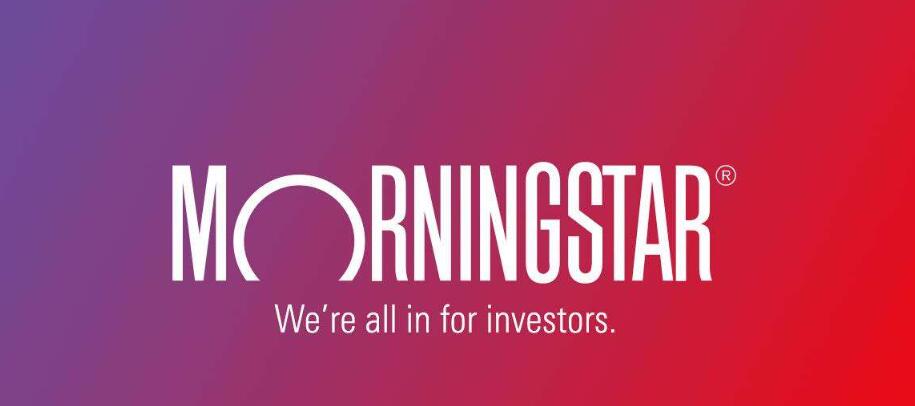
On-line brokers have been quickly lowering payments to zero on a few of their most prominent things, significantly supplies as well as exchange-traded funds (ETFs). The action caps off years of decreasing commissions across the sector.
While this trend has actually usually benefited investors– enabling them to maintain more of their money– it’s really long-term investors that win large from this type of fee battle. Here’s why these kinds of investors should cheer the changes, and also why temporary investors may wish to be somewhat careful.
Brokers zero out commissions
Charles Schwab acted as the catalyst for this most current wave of rate cross the sector. As one of the largest and also most revered brokers, Schwab introduced on Tuesday that they would be finishing payments for trades on stocks and ETFs, slashing charges from $4.95 to absolutely no for these safeties. On options trades, it additionally cut its base payment from $4.95 to no, however investors will certainly still pay $0.65 per contract.
TD Ameritrade did the same later on in the day, finishing its $6.95 commissions for stock and ETF trades. It followed Schwab’s carry on choices, as well, reducing its base compensation to zero as well as lowering its per-contract cost on choices professions to $0.65.
Competing E * Profession signed up with the battle royal the following day, reducing its $6.95 commission on stocks and also ETFs to zero. It likewise cut its base payment on choices trades to absolutely no and also lowered its per-contract fee on options professions to $0.65, matching its various other large rivals.
But it was Interactive Brokers that actually fired the first shot in this newest round of rate cuts, though it seemed like its days-earlier relocation went unnoticed. A leader in low-priced trading, Interactive Brokers introduced IBKR Lite, a service that allows endless open markets on supplies and also ETFs. An additional perk for investors: the account pays attractive interest rates on cash balances.
This has actually been the first round of significant cost cuts since 2017, after which the sector called a worried truce. Yet at the very least a couple other brokers already provided open markets.
Merrill Side gifted clients up to 100 free supply and ETF professions per month as part of parent company Financial institution of America’s favored client program, which needed $20,000 to begin.
And also certainly, Robinhood has actually gone one much better, and also has actually constantly provided totally free stock as well as ETF trades, however recently added complimentary choices professions, also– not also a per-contract commission.
And easily, many major on the internet players have actually moved commissions on stocks and also ETFs to zero, or at the very least provided you the ability to access free trades.
How can brokers afford to do this?
So a sensible question at this point is how exactly can brokers afford to do this as well as still earn a profit. In actuality, given the competition, the inquiry truly is how can they manage not to do it. Compensations have actually ratcheted down in fits and also begins for several years, with one broker decreasing them and then others adhering to shortly thereafter. Nobody agrees to preserve greater rates and also take the chance of losing clients to competitors.
And that goes triple when the industry struck the magic number of absolutely no.
However, for some brokers commissions are not the largest component of their business, as well as while they would certainly favor not to cut payments, they have other ways to make up the revenue.
Take Schwab, as an example. In 2018, trading revenue consisted of simply 8 percent of its general revenue, having dropped from 15 percent in 2014. About 32 percent of its revenue came from property monitoring, while 57 percent was interest earnings on client funds that it holds.
So Schwab stands to shed less than 10 percent of its sales, and by lowering its cost might have the ability to swipe clients from various other smaller sized brokers where compensations are a big component of their revenue. Plus, Schwab can benefit if it can obtain more clients right into its low-priced fund business or continue to hold clients’ cash as well as create passion for itself accurate.
The situation is different at TD Ameritrade, nevertheless, where compensations and also purchase costs comprised about 36 percent of revenue in 2018. Meanwhile, net rate of interest income was about 23 percent. So TD Ameritrade has a greater dependence on trading commissions, and also the company has claimed it expects revenue to fall 15 to 16 percent because of the cuts.
As well as not all brokers have a durable asset management business like Schwab to take the sting off.
To counter this lost revenue, brokers have one right away evident path: sell their order circulation. It’s a rather debatable practice in which a broker enables various other traders to see what trades are put on its platform, permitting much faster investors to action in front of these trades and also get a far better cost. In exchange, the broker gets cash.
The practice prevails amongst no-commissions brokers such as Robinhood, and it permits high-frequency traders to cut dimes or fractions of cents off each share traded, taking money from other traders. Are the brand-new zero-commission brokers moving in this instructions?
It’s very most likely.
Interactive Brokers has actually stated that its new free solution will certainly sell order flow while its older system will certainly not. However Interactive’s step also seems component of a gambit to get the SEC to pay more focus to the market and also how it establishes a best cost for professions. If the SEC developed new policies, those might benefit an established leader such as Interactive.
An additional key manner in which brokers might make up the shortfall is by paying you even much less on cash balances in your account. Recall that Schwab produces 57 percent of its revenue from rate of interest, which’s the difference in between what it gains on that particular money and also what it pays clients. So the broker may seek to broaden that margin by decreasing what it pays.
That, of course, is unfavorable to customers holding cash in their accounts.
Why long-term investors stand to benefit the most
While investors ought to be applauding the information, not all of them stand to benefit, depending upon how the market tones up. But investors do have several moves they can make to make certain that the industry’s price-slashing does without a doubt benefit them.
Initially, it’s fantastic that clients can stay clear of compensations on stocks and also ETFs. That’s money that can go right back into their pocket. A trader might modestly do a trade a week, as an example, to make sure that’s around $250 that can be conserved.
Yet will the attraction of zero commissions actually trigger investors to trade more frequently? If so, that could be rather unsafe for their wealth, because research after research reveals that “time in the marketplace” is one of the very best forecasters of an investor’s return and that day-traders generally lose money. While the financial savings might at first benefit short-term investors, it’s money that may ultimately be lost in the market as they continue to call losses.
So investors need to think long-term concerning their financial investments– a minimum of three to 5 years out– and also keep the exact same investing technique that they constantly did and also not be guided by no charges.
Second, investors can benefit by utilizing free trades to practice buck price averaging better. Buck cost balancing means buying fixed dollar quantities of stock over amount of times. The technique standards out your buy rate as well as can assist you profit more.
Prior to, dollar-cost averaging could get expensive as well as reduce into returns even if you were investing a few hundred dollars regularly. Now many thanks to open markets, even investors with small quantities of money can add to their placements as well as make the most of dollar-cost averaging.
Third, if as a feedback to this rate cut, brokers move to pay also less on your cash balances, maybe sensible for you to take matters right into your own hands to ensure you’re optimizing your money.
For instance, through your broker agent you can usually purchase insured bank items such as CDs, which generally earn more than what a broker will certainly pay on your still cash. Or you can or else quickly move that money out of the brokerage account and into a bank’s CD or savings account till it’s needed at the broker. (Here are the highest-yielding savings accounts on the marketplace currently.).
Additionally, you can make financial investments– now for free– in other really low-risk products that earn a bank-like return. (Here are five methods to use your broker agent account like a savings account.).
Lastly, if free trades create investors to trade regularly, after that it becomes even more essential for investors to stick to their long-term attitude. Not only will they stay clear of the enhanced chance of losing money on temporary trades, but they’ll also reduce the impact of high-frequency traders on their portfolio. If you get and also hold long-term, the few cents on a trade that these traders scalp on each share will make no real distinction to your long-term return.
Bottom line
The industry’s newest move to slash compensations can be wonderful for investors, if they do not allow it affect their trading as well as rather rake the cost savings back into financial investments. But even as commissions drop, so do rates of interest, and also investors ought to ensure they’re managing any kind of excess cash in their brokerage accounts and optimizing their returns.




